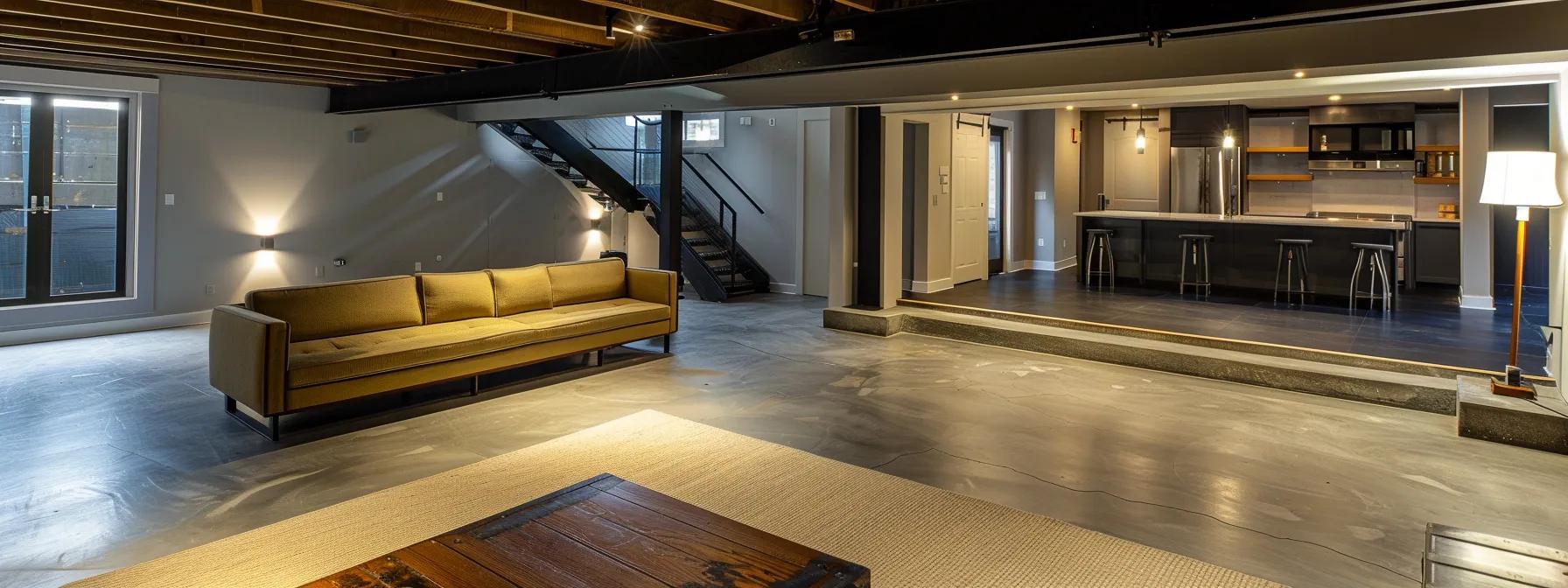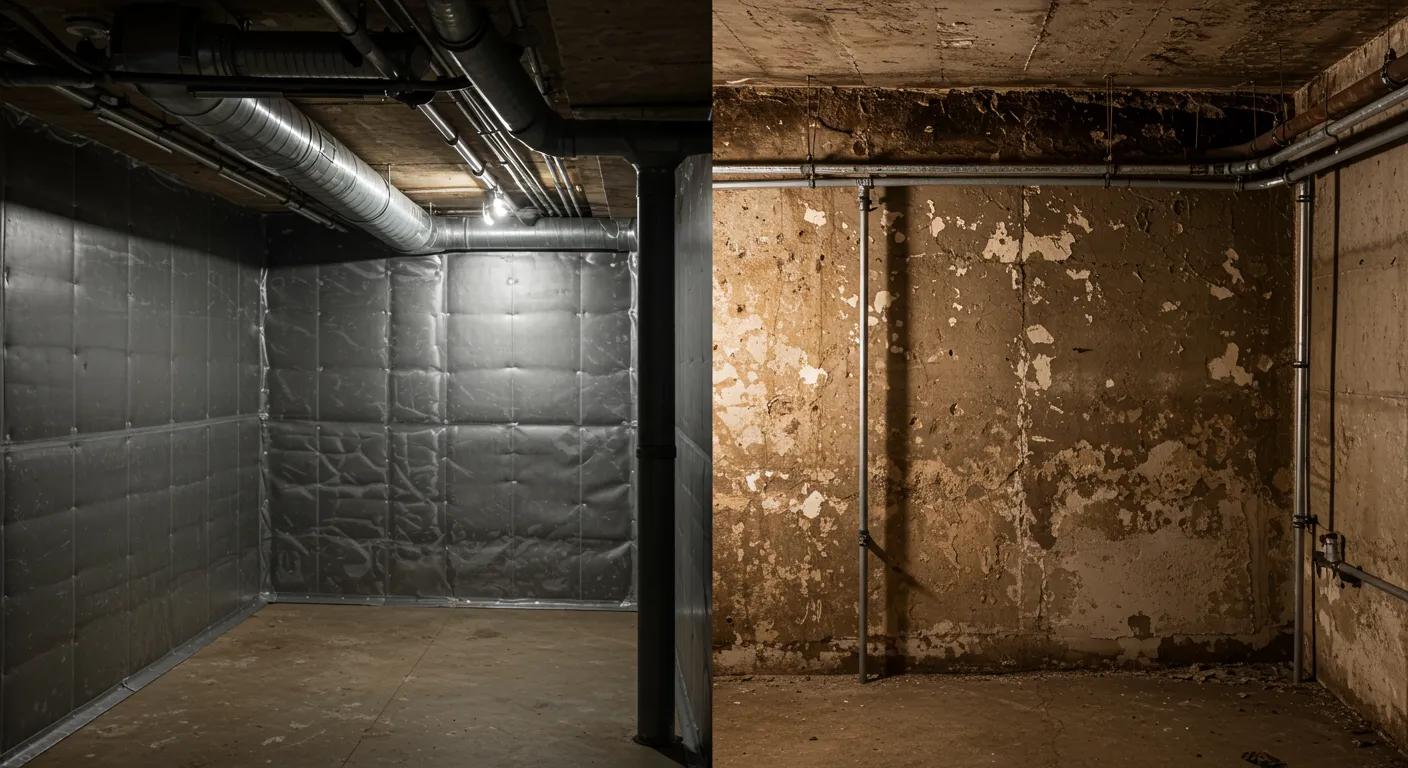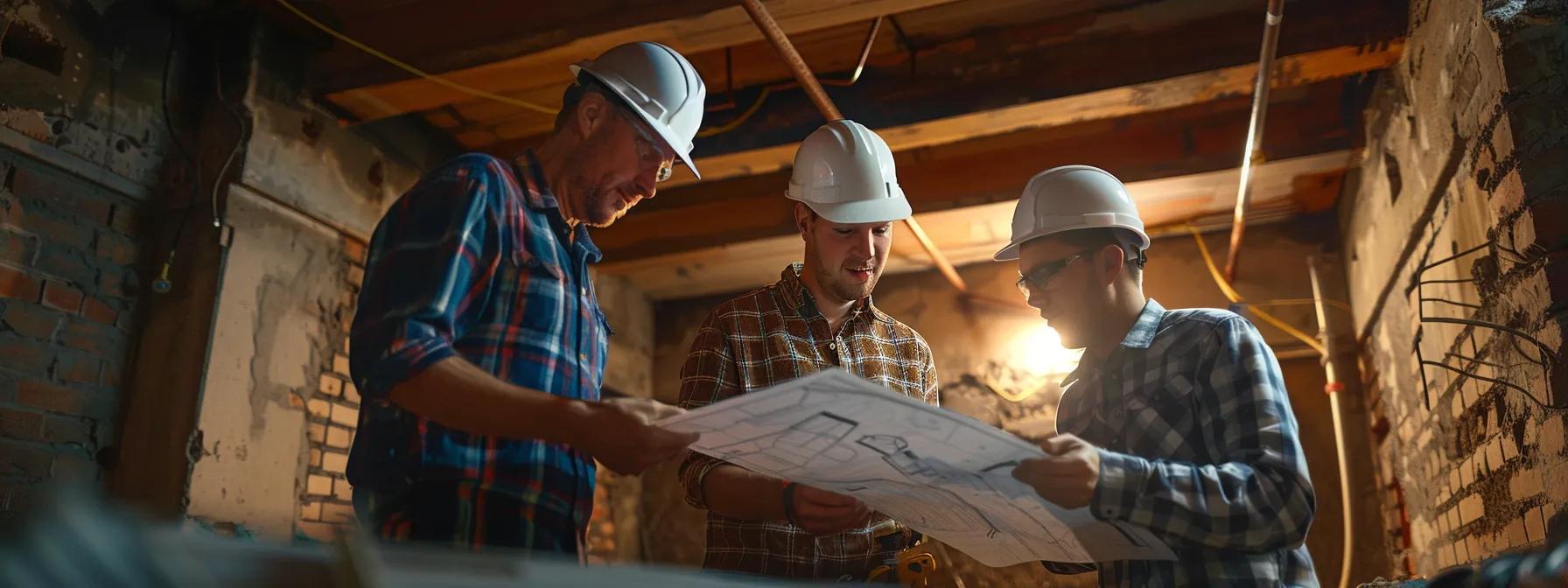Choosing Between Interior and Exterior Basement Waterproofing
Basement Waterproofing Philadelphia Experts
At MBB Basement Waterproofing, keeping water out of your home is what we do best. In this post, we’re breaking down the differences between interior and exterior basement waterproofing so you can choose the right solution. Whether we’re working on your foundation, concrete slab, or entire basement system, our goal is lasting protection and peace of mind. For homeowners looking for reliable basement waterproofing Philadelphia, we’ve got you covered.
Understanding Core Differences in Basement Waterproofing Approaches
When evaluating basement waterproofing solutions, the core differences are found in the methods used, complexity of application, and long-term effectiveness. We define each approach, discuss benefits, and highlight factors that determine the best solution for your property.
Defining Interior Basement Waterproofing Systems
Interior waterproofing systems protect your home by treating water once it has entered the basement. We install solutions such as waterproof coatings, epoxy sealants, and interior french drains along with a sump pump to lower the water table, control moisture, and prevent leaks that could cause mold or structural issues. While this method effectively controls condensation and moisture seeping through cracks, it does not stop water from entering the foundation wall; rather, it minimizes damage by redirecting water to a safe outlet.
Defining Exterior Basement Waterproofing Methods
Exterior waterproofing focuses on preventing water from entering the basement altogether. We apply waterproof membranes, exterior sealants, and install drainage systems – such as perimeter or french drains – after excavating along the perimeter of your home. This method creates a direct protective barrier to prevent soil moisture and water pressure from penetrating the walls. Exterior systems are especially effective against high water tables and significant hydrostatic pressure but require greater investment and can disrupt landscaping during installation.
Key Distinctions Philadelphia Homeowners Should Recognize
For Philadelphia homeowners, the choice hinges on reliability, installation costs, and performance over time. Interior waterproofing is less invasive and generally more cost-effective, making it popular for retrofits. Exterior waterproofing, though higher in cost and more disruptive due to excavation, provides a permanent barrier ideal for severe water issues. Our basement waterproofing Philadelphia experience shows that moderate water problems may be resolved with interior methods, while severe infiltration or foundation cracks call for the comprehensive exterior approach. Local soil and climate variations also play an important role in the decision.
How Each Method Addresses Water Intrusion
Both methods employ different techniques. Interior systems manage moisture after it enters usingsump pumps and interior drains to quickly remove water, especially during isolated heavy rains. In contrast, exterior systems stop water at its source by using robust membranes and external drainage to prevent water from ever contacting basement walls. This difference is critical when choosing a method that matches your home’s specific needs.
Initial Assessment Points for Your Property
Our process starts with a comprehensive basement inspection. We check for visible cracks in the concrete slab, assess moisture levels, and look for signs of water damage such as efflorescence or mold. We also inspect downspouts, property grading, and the overall foundation integrity.
Key assessment points include:
- Visible foundation cracks or deterioration
- Signs of water damage (efflorescence, mold)
- Effectiveness of existing drainage (roof, downspout)
- Soil composition and water table levels
This evaluation guides us in recommending the most suitable interior or exterior waterproofing solution for your Philadelphia home.
Evaluating Interior Waterproofing Solutions for Philadelphia Homes

Interior waterproofing helps us control moisture that’s already made its way into the basement. It’s a smart option when exterior solutions aren’t practical—whether due to cost, design limitations, or space. Our basement waterproofing Philadelphia services include interior systems designed to keep your home dry, even when outside conditions aren’t ideal.
Common Interior Waterproofing Techniques Explained
When it comes to protecting our homes, especially the basement, we know that using the right interior techniques makes all the difference. One of our top methods is installing interior french drains around the basement perimeter. These drains are key to capturing any seepage before it can enter your home. We also apply waterproof coatings and sealants directly to basement walls, creating a strong barrier that keeps moisture out and walls dry.
A reliable sump pump installation is another vital step, especially in areas prone to heavy rain. This pump actively removes excess water, helping your basement stay dry no matter the weather. To tackle foundation cracks, we use epoxy injections to seal and repair them, preventing further damage.
When Interior Waterproofing Is the Optimal Choice
Interior waterproofing is best suited for situations with minor to moderate water intrusion issues such as condensation or occasional seepage. It is also ideal when an exterior solution is impractical due to budget constraints or accessibility concerns. For many Philadelphia homeowners facing manageable moisture issues, an interior system provides a fast, affordable fix and is often our first recommendation after an initial assessment.
Interior Waterproofing Philadelphia Cost Considerations
Cost is a key factor. Interior systems are generally less expensive than exterior methods because they require less labor and materials without the need for excavation. Our free quotes detail: – The cost of materials like waterproof coatings, sealants, and sump pump systems. – Labor fees for installation. – Any additional cost for future maintenance services or repairs. Our transparent pricing and clear warranty coverage reinforce our commitment as the leading basement waterproofing company in Philadelphia.
Assessing Exterior Waterproofing Systems for Philadelphia Properties
Exterior waterproofing provides a complete barrier to stop water intrusion from the outset. This comprehensive approach is best for severe moisture issues and high water tables.
Typical Exterior Waterproofing Application Processes
When it comes to protecting our homes, especially basements, we’ve found that using proven interior waterproofing techniques really makes a difference. One key method we rely on is installing interior french drains around the basement perimeter. These drains catch any water trying to seep in, keeping your home dry.
We also apply waterproof coatings and sealants directly on basement walls to create a strong moisture barrier. And for homes facing heavy rain, a reliable sump pump is a must—it actively removes water to prevent flooding. To address foundation cracks, we use epoxy injections to seal and repair them effectively. Together, these solutions form a complete system that guards against moisture, lowers humidity, and improves indoor air quality.
As basement waterproofing expert in Philadelphia, we’re committed to protecting your home and creating a healthier living space through smart, effective basement waterproofing Philadelphia solutions.
Benefits of Implementing Exterior Waterproofing Solutions
Exterior waterproofing is one of the most effective ways to keep your basement dry and your home protected. By sealing the outside of your foundation, we stop water before it can seep in—helping you avoid moisture damage, mold growth, and that musty basement smell. It’s a smart, long-term solution that also requires less maintenance than interior systems.
For homes dealing with heavy water intrusion or high hydrostatic pressure, exterior waterproofing offers durable protection that safeguards your foundation and indoor air quality. At MBB Basement Waterproofing, we provide trusted basement waterproofing services to homeowners throughout the region. If you’re looking for basement waterproofing in Philadelphia, we’re ready to help you keep your basement dry and your home safe.
Drawbacks Associated With Exterior Methods
When it comes to exterior waterproofing, it’s essential to weigh not just the advantages, but also the potential drawbacks. One significant consideration is the cost; this method tends to be more expensive because it involves extensive excavation and the use of higher-grade materials. These added expenses can make homeowners hesitant, but it’s important to remember that the price reflects the quality and durability of the solution. Additionally, the labor-intensive nature of the process often extends the project timeline, which can be a factor for those eager to complete the work quickly.
Another aspect to keep in mind is the temporary impact on aesthetics. During the excavation process, your landscape might be disrupted, leading to a less-than-pleasant appearance until everything is restored. This is a consideration we take seriously, as we want to minimize any inconvenience for our clients. Before proceeding with any exterior waterproofing project, our team conducts a thorough evaluation of these drawbacks against the long-term benefits the solution provides. This careful assessment ensures that we deliver a waterproofing solution that is not only effective but also financially viable in the long run
Situations Favoring Exterior Waterproofing for Philadelphia Basements
When dealing with basement water issues, choosing the right waterproofing method makes all the difference. In many Philadelphia homes, a high water table or poor soil drainage puts constant pressure on the foundation. If you’re noticing frequent seepage or widening foundation cracks, it might be time to look beyond interior solutions. That’s where exterior basement waterproofing comes in. By tackling the problem at its source—outside your home—we create a stronger, longer-lasting defense against moisture. It’s a smart move that not only keeps your basement dry but also helps protect your foundation from future damage.
At MBB Basement Waterproofing, we’ve seen how effective exterior systems can be—especially when interior fixes just aren’t cutting it. If moisture keeps creeping in, it’s worth exploring this proactive option to safeguard your home for the long haul.
Interior vs Exterior Basement Waterproofing: Which Is More Effective?

When assessing the effectiveness of both systems, it is important to consider how each targets the source of moisture and its impact on your home.
Addressing Different Sources of Basement Moisture
When it comes to keeping our homes dry, it’s important to understand the difference between interior and exterior waterproofing systems. Interior waterproofing handles water that’s already found its way inside—whether from condensation or minor cracks. These systems use solutions like sump pumps and interior drains to quickly move water out, helping us manage current issues and keep our basements dry.
Exterior waterproofing, on the other hand, works to stop water before it ever enters. By creating a protective barrier around the foundation, this method blocks moisture from the surrounding soil and helps reduce hydrostatic pressure—a major cause of basement leaks.
At MBB Basement Waterproofing, we help homeowners throughout Philadelphia and the surrounding areas choose the best approach for their needs. Whether it’s sealing from the outside or managing moisture inside, the right basement waterproofing system makes all the difference in protecting our homes.
Long-Term Durability of Interior Solutions
Interior waterproofing can protect your basement effectively if maintained regularly. However, the durability of these systems depends on ongoing maintenance such assump pump checks and periodic reapplication of sealants. Over time, persistent moisture can compromise the foundation since the external barrier remains unaddressed.
Longevity and Protection From Exterior Systems
Exterior waterproofing is designed for long-term protection. High-quality membranes and drainage systems reduce the risk of foundation collapse and chronic water damage. These systems require less frequent maintenance and generally provide a more permanent solution to water intrusion.
Which Method Offers More Comprehensive Protection
For comprehensive protection, exterior waterproofing offers the strongest barrier by preventing water contact entirely. However, if the concern is limited to minor seepage or condensation, interior systems quickly remediate existing damage. Some homeowners even choose a hybrid approach to optimize protection through layered defense.
Impact on Your Philadelphia Property’s Foundation Health
Moisture and water pressure directly impact foundation health. Exterior systems shield the foundation by stopping water at the wall, while interior systems reduce damage by removing water that has entered. For older properties with existing foundation cracks, exterior waterproofing can significantly enhance structural longevity by maintaining proper soil moisture levels and reducing water-induced fissures.
Making the Informed Waterproofing Decision for Your Basement
At MBB Basement Waterproofing, we guide homeowners to make informed decisions by evaluating both their specific needs and property conditions. Our assessments determine whether interior or exterior waterproofing is best for your basement.
Identifying the Specific Water Problem in Your Basement
The first step is to diagnose the water problem—whether it is caused by seepage, surface water, soil moisture, or a combination. We inspect for leaks along foundation cracks, condensation, or occasional flooding. This diagnosis directs us to recommend the appropriate system: interior measures for incidental buildup versus exterior measures for strong structural pressure.
Aligning Solutions With Your Philadelphia Home’s Structure
Every home is unique. We consider architectural elements, the age and porosity of your concrete, and any previous foundation repairs when tailoring our waterproofing solution. Older homes with porous walls may benefit from a comprehensive exterior system, while newer constructions with minor moisture issues might only require interior measures.
Weighing Project Invasiveness and Completion Timeframes
Project invasiveness and duration are critical. Interior waterproofing is less disruptive and can be completed quickly, making it ideal for homeowners needing rapid intervention. In contrast, exterior waterproofing involves more extensive excavation and longer project timelines, which may be more suitable if you are planning a renovation or already face serious water stress.
Budgetary Alignments for Interior vs Exterior Waterproofing Philadelphia
Budget considerations play a major role. Interior systems typically have lower installation costs due to less labor and fewer materials. Exterior systems require a larger upfront investment but offer longer-term protection that can prevent costly future repairs. Our detailed, transparent estimates help you balance immediate costs with long-term benefits.
Future Maintenance Needs for Each Waterproofing Type
Future maintenance is essential for both approaches. Interior systems may need regularsump pump maintenance, reapplication of sealants, and periodic inspections. Exterior systems are designed to be durable with less frequent upkeep. We provide a maintenance schedule and service options to keep your basement dry and your foundation secure over time.
Selecting Qualified Waterproofing Professionals in Philadelphia

Choosing the right contractor is critical for project success. At MBB Basement Waterproofing, our experienced team is committed to delivering unmatched expertise and customer care. We emphasize credentials, detailed estimates, and reliable warranties.
Identifying Reputable Philadelphia Basement Waterproofing Companies
When researching professionals, look for those with a strong local reputation, positive customer reviews, and proper licensing and insurance. Our 20+ years of experience and consistent customer satisfaction ensure you are in capable hands.
Verifying Credentials and Experience for Interior or Exterior Work
Always verify credentials. Request proof of previous projects, certifications, and training specific to both interior and exterior methods. We provide our project portfolios and case studies so that clients can see our high approval rates and quality workmanship firsthand.
Understanding Project Scope and Written Estimates
A clear project scope paired with a detailed, written estimate facilitates transparent communication. Our estimates outline materials, labor, timelines, and any potential extra costs to allow you to compare proposals fairly and avoid surprises.
Reviewing Warranties for Philadelphia Waterproofing Services
Warranties protect your investment and reflect a company’s confidence in their work. We offer robust warranties on both interior and exterior systems that cover materials and installation labor, ensuring peace of mind over the long term.
Questions to Pose to a Philadelphia Waterproofing Contractor
When interviewing potential contractors, consider asking: – What waterproofing methods do you recommend for my basement? – Can you share past customer testimonials or case studies? – What is the estimated timeline and potential disruption? – How do you handle foundation cracks and structural repairs during waterproofing? – What maintenance plan do you offer post-installation?
Our team is always available to discuss these questions, ensuring that our clients are well-informed for long-term success.
Frequently Asked Questions
Q: What is the main difference between interior and exterior waterproofing? A: Interior waterproofing controls water that has already entered your basement through drains and sealants, while exterior waterproofing prevents water from entering by creating a barrier around the foundation.
Q: How do I know if my basement needs interior or exterior waterproofing? A: A professional assessment of foundation cracks, moisture levels, and drainage issues will determine if the less invasive interior system or the comprehensive exterior approach is needed.
Q: Are exterior waterproofing systems more expensive than interior ones? A: Yes, exterior systems generally involve higher costs due to the excavation, materials, and extensive labor required. However, they offer longer-lasting protection that can reduce future repair expenses.
Q: How often do interior waterproofing systems need maintenance? A: Interior systems typically require regular sump pump checks, periodic reapplication of waterproof coatings, and routine inspections—usually every few years—to ensure optimal performance.
Q: Can I combine interior and exterior methods for added protection? A: Absolutely. Many homeowners opt for a hybrid approach to maximize protection by blocking water entry with exterior measures while managing any residual moisture with interior systems.
Q: What warranties do waterproofing companies usually offer? A: Reputable contractors offer warranties covering both materials and installation labor for several years, ensuring that your investment is protected over the long term.
Q: How long does waterproofing work last? A: When properly installed, exterior waterproofing systems can last for decades, while interior systems may require maintenance every 5–10 years to maintain efficacy.
Q: Will waterproofing affect the value of my home? A: Yes, effective waterproofing protects your foundation, prevents mold and water damage, and can increase the long-term value and safety of your home—features that are highly attractive to homebuyers.
Q: Is there any impact on indoor air quality from waterproofing? A: Interior waterproofing improves indoor air quality by reducing dampness and mold growth, thereby helping to prevent respiratory issues and supporting a healthier living environment.
Q: What are common problems with basement waterproofing? A: Common issues include pump failures, incomplete sealing of cracks, and improper drainage. Regular inspections and maintenance are key to avoiding these pitfalls.
In summary, choosing between interior and exterior basement waterproofing in Philadelphia depends on your specific moisture challenges, budget, and long-term plans. At MBB Basement Waterproofing, we leverage our extensive experience to design solutions that protect your foundation and ensure a dry, safe basement environment. Whether you need an immediate fix with interior systems or a comprehensive solution with exterior waterproofing, our team is committed to delivering quality, reliable service that meets your home improvement goals.
